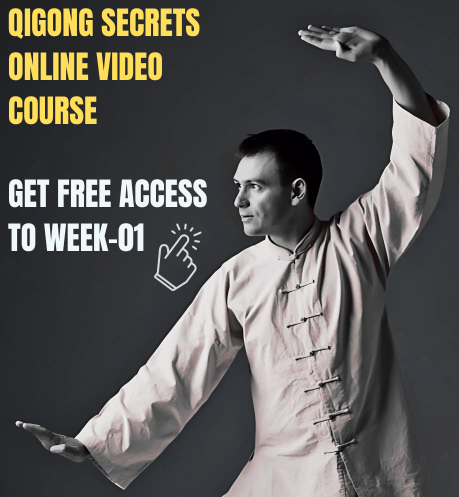Two large scale studies into the psychology of motivation discovered that those who:
- Used a celebrity or great leader as a role model
- Think bad things will happen if they don’t achieve their goal
- Try to suppress unhelpful thoughts
- Rely on willpower
- Fantasize about how great their life will be when they achieve their goal
Were unlikely to achieve their goals. Whereas, those who:
- Make a step by step plan
- Tell other people about their goals
- Think about the good things that will happen if they achieve their goal
- Reward themselves for making progress towards their goals
- Record their progress in a journal or a chart
Significantly increased the likelihood of achieving their goals.
The studies were run by Prof. Richard Wiseman and tracked over 5,000 people from all over the world. You can find more information his excellent book: 59 Seconds: Think a little, change a lot.
But the results are clear. If you want to succeed with your Chi Kung/Qigong training then you must:
Use a step by step plan
If you are learning under the guidance of a good Qigong teacher, this is easy. You simply follow their instructions to the best of your ability.
If you don’t have access to a good Qigong teacher (don’t worry – you’re in the majority) then I’d recommend my Qigong Online Course.
I have deliberately created both these courses to follow a step by step approach as I’ve found that’s how I, and my students learn best.
Tell other people about your goals
Now this step is really 2 steps in one. First you must get clear on what your aims and objectives (your goals) are for your training.
Remember, Aims are long term, they usually take over 6 months to achieve. Objectives are short term. I’ve written in great depth about aims and objectives elsewhere.
The important point is that you get to choose. Goals are important because they act like a GPS unit that keeps you on track. They help you to keep moving in the right direction. To get their full power, once you’ve worked out your Aims and objectives, write them down, print them off and post them where you can see them regularly.
Now the 2nd part of this motivation strategy is to share your goals with other people. But a word of warning – be careful who you choose to tell about you new goals.
Why?
There are some people in your life right now who, for whatever reason, will be threatened by your desire to change and improve your life. I call these people ‘negatrons’ – you know who they are.
It is wise not to tell these people your goals, because they are unlikely to be supportive in your attempt to achieve them. There will be hurdles and obstacles on the path to your goals, accept that – these people will not help you to get over them.
But there are others in your life who when the going gets tough, will encourage you, inspire you to grit your teeth, dig deep, ‘soldier up‘ and push forwards. These are the people you should share your new goals with.
Future Pace
Regularly think about all the good things you’ll be able to feel, see hear, or do if you achieve your aims and objectives. I recommend spending a few minutes on this at the end of every Qigong training session and whenever you feel like doing it.
Reward Yourself
I once set myself the objective of my feet hitting the floor every morning at 6am for a month. I decided that if I succeeded in this task I would reward myself with a massage. It was very good!
Reward yourself often when you take steps closer to your aims and objectives. Practiced a week without missing a session? Reward. Met one of your objectives? Reward. Rewards don’t have to be expensive, use your imagination.
Record your progress
I think Peter Drucker (writer, professor and management consultant) stated it best when he said: What gets measured gets managed. If you’re not recording and measuring your progress at least once a month, how do you know if you are moving closer towards your aims and objectives?
You don’t. We practice Qigong because we want some sort of result or outcome. You need to know if you’re moving further away or closer to it.
Conclusion
Implement these 5 motivational strategies that work into your Qigong training and you’ll be on the fast lane to success.
Keep in mind that if something is worth doing it’s worth doing rubbish to start with. Forget getting everything right first time. We’re not interested in perfection, we’re interested in progress:
“Stop Wishing And Start Doing” – Tim Ferriss
Bye for now
Marcus James Santer
